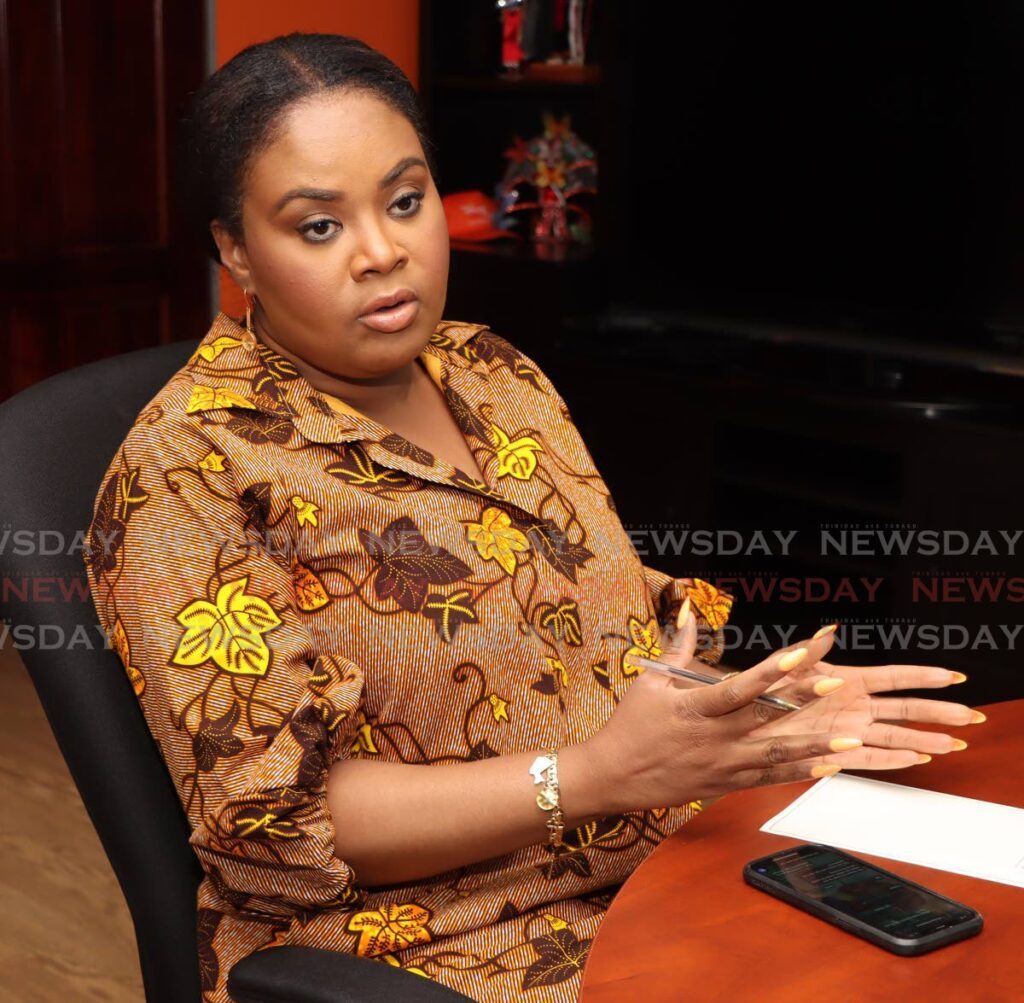JSC: More awareness of period poverty needed

MEMBERS of the Parliament's Human Rights, Equality and Diversity Joint Select Committee (JSC) have said much more work needs to be done to make people more aware of the serious challenge that period poverty poses to many girls and women.
They expressed this view to representatives of the Office of the Prime Minister (OPM), Education and Health Ministries and the NGO Crown Her TT during a virtual meeting on Thursday.
Period poverty is defined as the lack of access to safe and hygienic menstrual products and inaccessibility to basic sanitation services or facilities as well as menstrual hygiene education.
Sport and Community Development Minister Shamfa Cudjoe-Lewis said many people in Trinidad and Tobago do not know what period poverty is. She added that some people are hesitant to talk about periods and see this as some kind of taboo.
She recalled being in an elevator with other people, when her handbag was open and some feminine hygiene products were visible.
Describing the reaction of some people to the contents of her handbag, she said, "People were looking at me like I was a freak of nature."
She acknowledged that some women may not be able to obtain menstrual products because of their economic circumstances. Cudjoe-Lewis told participants some women cut the sleeves off shirts or used old cloths as substitutes.
She also recounted thee story of a woman who used one menstrual pad repeatedly, became ill and was unable to work.
She also said there are cases where women who could afford menstrual products choose instead to spend their money on things like food and jewellery.
Greater public education, she continued, is essential to ensure people understand the problems that period poverty poses to women, and this was not something only for the government to do.
"It is a whole-of-society approach."
Cudjoe-Lewis, who is also Tobago West MP, suggested that when private-sector companies wish to donate items to MPs to include in hampers for their constituents, they could include feminine products in addition to items such as food and toiletries.
Opposition Senator Jearlean John agreed with Cudjoe-Lewis that having a period can be traumatic for girls, especially when they do not understand what is happening to them.
She was concerned about the results of a recent surveys by Parliament and Crown Her which suggested 63 per cent of girls could not access menstrual products in schools.
John suggested something should be done to address this.
JSC chairman Dr Mohammed Yunus Ibrahim wondered whether TT should be following the lead of other countries such as Scotland, New Zealand, Brazil and Zambia, which have passed legislation to make menstrual products more accessible.
"Are we behind time?"
Ibrahim said there is data to suggest some women who are economically challenged must forego things like buying food or paying their rent, in order to purchase menstrual products.
"People have to pinch for pennies for their dignity."
Port of Spain South MP Keith Scotland and Independent Senator Helon Francis were uncertain of the extent to which men were sensitive to these problems faced by women.
Scotland believed such sensitisation should begin at school and move upwards.
"It is not just about females alone."
He said equal sensitisation of men and women about period poverty would go a long way to shattering many related taboos.
Acting OPM permanent secretary Vijay Gangapersad said initiatives such as greater provision of menstrual products in schools to girls who are most in need could be explored.
OPM deputy director (gender affairs) Amilcar Sanatan agreed with Scotland and Francis' suggestions about greater inclusion of boys and men in understanding period poverty.
Education Ministry director (curriculum planning and development division) Anna Singh said the ministry does make menstrual products available in schools for students in cases of emergency.
But she added that at this time, there are no arrangements to make them available to every female student.
Singh also said recent surveys by the ministry have found no evidence to suggest that absenteesim amongst female students was related to period poverty.
Health Ministry director of women's health Dr Adesh Sirujsingh said services were provided in the health sector to address menstrual issues with women and girls.
Crown Her TT president Dr Nadira Rambocas said her NGO continues to advocate for the provision of adequate feminine menstrual products as a basic need for all women.
She added this will help them to "live their daily lives with dignity."

Comments
"JSC: More awareness of period poverty needed"